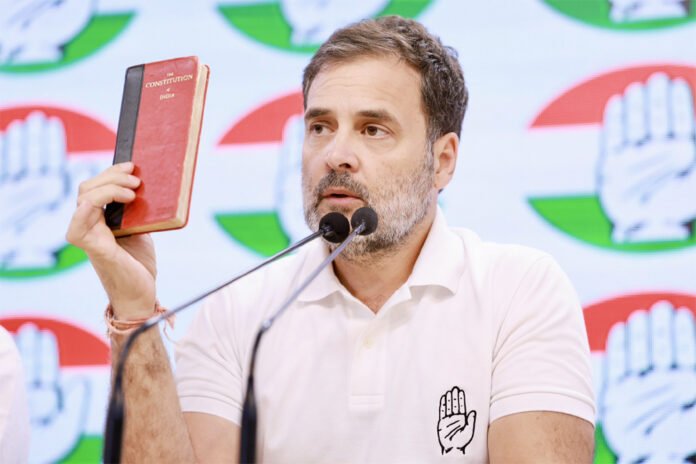Rahul Gandhi, as the leader of India’s opposition, holds a crucial position that demands he speak responsibly and accurately. By claiming without evidence, that Sikhs are under threat from the Indian government, he risks stirring up unnecessary discontent and fueling separatist sentiments.
India cannot afford a repeat of the violent unrest in Punjab from the 1980s and 1990s, which was exacerbated by Congress’s vote bank politics. This is particularly problematic for Congress, given their past support of figures like the late Sidhu Moose Wala, who was linked to alleged Khalistan sympathies and given a ticket to run in the last assembly elections.
While there might be some cooked up evidences of hate crimes against Muslims and Hindus, dragging Sikhs into the same narrative without proof is unwise. Here are some key facts undermining Gandhi’s claims:
- About 77% of India’s Sikh population resides in Punjab, where Sikhism is the majority religion, practiced by 57.7% of the population. Sikhs thus have significant numbers and political influence in the state.
- Punjab is unique in India for having a blasphemy law, introduced to protect Sikh interests. Notably, Captain Amarinder Singh, a Sikh and former Congress Chief Minister who expanded this law in 2018, later joined the BJP, suggesting the BJP is not anti-Sikh.
- Sikhism is deeply integrated into India’s Dharmic traditions. Sikh holy texts reference Hindu deities, and Sikhism shares cultural and religious ties with other Dharmic traditions. Sikhs have played a vital role in maintaining India’s unity, with figures like KPS Gill, who led the fight against militancy in Punjab, being Sikh.
- The RSS-BJP and the Modi-led NDA government have supported Sikh interests. For instance, the NDA reopened investigations into anti-Sikh riots and facilitated Sikh pilgrimages to Pakistan. The Modi government also offered citizenship to Sikhs persecuted in neighboring countries and invested in Sikh heritage sites.
- Prime Minister Narendra Modi has publicly expressed respect for Sikhism, even donning a turban in homage, and his cabinet includes Sikhs in significant positions. Sikhs also hold prominent roles across various sectors in India.
Given this context, Congress, and particularly Rahul Gandhi, lack the moral authority to comment on Sikh safety, especially considering the Congress party’s troubled history with the Sikh community. Statements by figures like Rajiv Gandhi, and the controversial responses of Congress leaders to the 1984 anti-Sikh riots, reflect poorly on their commitment to Sikh welfare. It was his party which wreaked havoc on the innocent Sikh community during 1984 riots.
For years, Jagdish Tytler and Kamal Nath were shielded from accountability, despite multiple commissions being established to investigate the 1984 anti-Sikh riots. The Congress party has not yet formally admitted to its role in concealing the truth about these events.
Furthermore, Rahul Gandhi’s remarks could be exploited by external actors. Pakistan, which has historically supported Khalistani separatism, might use these statements to incite further unrest in Punjab. Similarly, Sikh extremists in the U.S. could leverage Gandhi’s claims to further their narrative of victimhood, potentially complicating diplomatic relations.
In summary, Rahul Gandhi’s recent statements seem to serve a political agenda at the cost of fostering division and conflict, rather than addressing any genuine issues.

